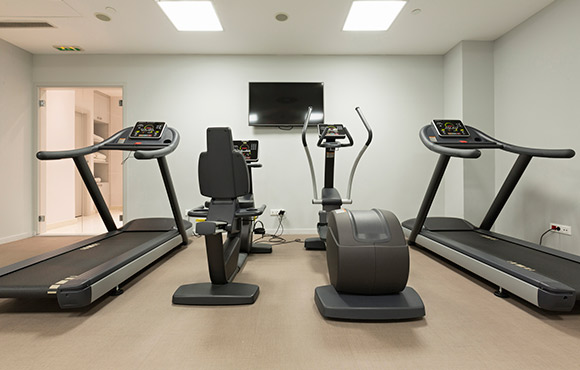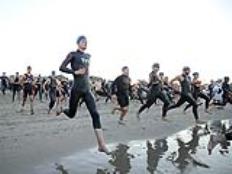Good luck!
Gear
1 of 10
You don't need much to get started. Invest in good fitting goggles and good fitting run shoes. Whatever bike you have access to will work fine. Be familiar with your gear and know how to use it. Learn how to change a flat tire. Don't be intimidated by the high-end gear you'll see in transition. Most triathletes spend several years collecting and upgrading their equipment.
Be Prepared
2 of 10
Make sure your training is not just adequate to finish the distance, but to allow you to enjoy the experience. Be sure to include brick workouts, which are runs that immediately follow a bike workout. This will get your legs used to the "brick" feeling in your legs when you get off the bike to run.
Be Educated
3 of 10
Know the triathlon rules as well as the specifics of your race. Most races provide information on their website or at packet pickup. Know the schedule, routes and any other pertinent information. Volunteering at a race is a great way to see a triathlon firsthand and become familiar with how things will go.
Hire a Coach
4 of 10
A good coach will not only provide a training plan that will set you up for success, but also be a wealth of information that will keep you from having to learn the hard way. Coaches provide guidance, accountability and motivation.
Transition
5 of 10
Keep your transition area simple and clean. Practice in advance until you can efficiently move through both the swim to bike and the bike to run transitions.
Swim
6 of 10
Be comfortable swimming in open water. Do not attempt your first open water swim on race day and never swim in open water alone. The pool is great for fitness and form, but open water is a skill of its own. Get comfortable wearing a wetsuit and know how to get it on and off without damaging it.
Pacing
7 of 10
A very common mistake among new triathletes is starting too hard. Relax on the swim and avoid the chaos of a mass start. Start conservative on both the bike and run, aiming to finish the second half quicker than the first.
Have Fun
8 of 10
This was by far the most common response. Relax; even seasoned veterans feel nerves prior to the race, but they will go away as soon as the race begins. Plan for things to go wrong and don't let them ruin your experience. Don't get fixated on a finish time or what anyone else is doing. Race your race.
Say Thank You
9 of 10
Building a triathlete requires a village. Most have a support system of family, friends and teammates. Races don't happen without volunteers and law enforcement. Saying thank you not only conveys gratitude, but will help produce a positive outlook throughout the race.







Discuss This Article